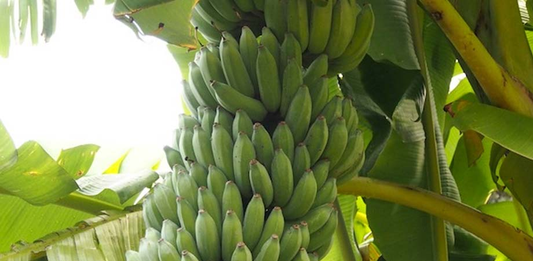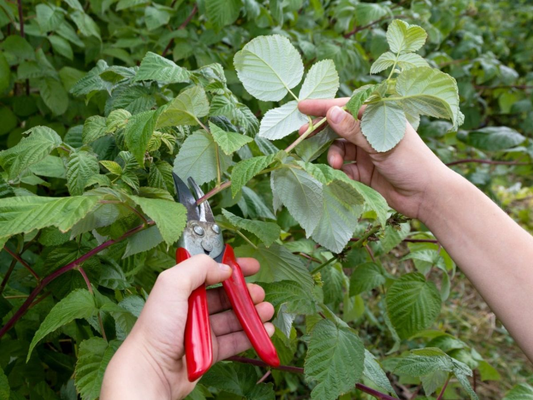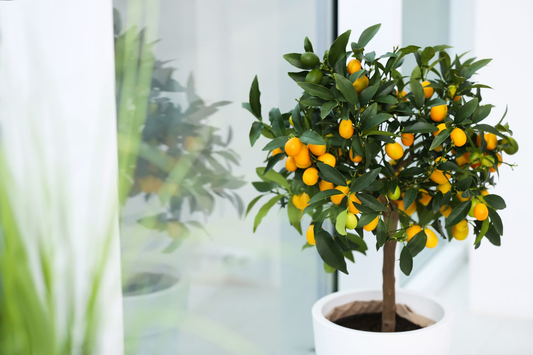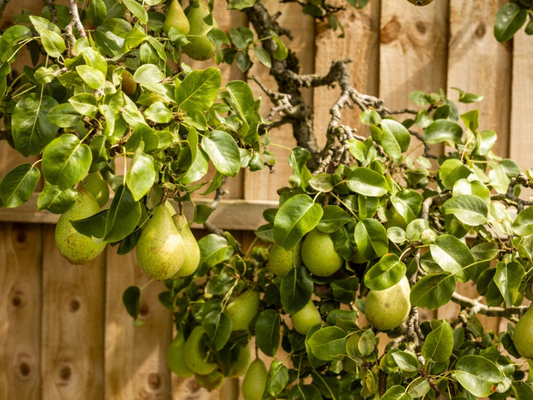Where Are the Best Plant Nurseries Near Me? A Local’s Guide
Share
Table of Contents
1. Introduction
Finding the best local plant nurseries can make all the difference in creating a thriving and beautiful garden. Whether you are a seasoned gardener or just starting out, local nurseries offer more than just plants – they provide a wealth of knowledge and personal recommendations tailored to your area’s climate and growing conditions. Unlike large retailers or online stores, local nurseries often focus on quality over quantity, ensuring that the plants you take home are healthy and suited to your specific environment.
Shopping locally for plants has several key advantages:
- Better climate adaptation: Local nurseries stock plants that are proven to thrive in your area’s climate and soil conditions.
- Personalized advice: Nursery staff can offer expert advice on plant care, helping you make the best choices for your garden’s specific needs.
- Supporting local businesses: Buying from nearby nurseries helps your community by supporting small businesses and contributing to the local economy.
- Environmentally friendly: Purchasing plants locally reduces the carbon footprint associated with long-distance shipping of plants.
In this guide, we will walk you through the steps to find the best plant nurseries near you. We’ll cover how to search for nurseries, what to look for when visiting, and even highlight some of the top-rated options in your area. By the end, you’ll be equipped with all the knowledge you need to make informed decisions and support your local plant community.
Here’s what you can expect to learn:
- Why Choosing a Local Plant Nursery Matters: Explore the many benefits of buying plants locally.
- How to Search for the Best Plant Nurseries Near Me: Learn how to effectively find nurseries in your area.
- What to Look for in a Top-Quality Plant Nursery: Discover the key factors that make a nursery stand out.
- Top 5 Recommended Plant Nurseries in Your Area: Get a list of the top local nurseries with details on what makes them special.
- Online Alternatives to Local Plant Nurseries: Understand when and why to consider online shopping for plants.
Let’s dive into the exciting world of local plant nurseries and discover how you can cultivate a garden that thrives with the help of nearby experts!

2. Why Choosing a Local Plant Nursery Matters
When it comes to growing a healthy, vibrant garden, the choice of where you buy your plants is crucial. While big-box stores may offer convenience and lower prices, local plant nurseries provide numerous advantages that can make a significant difference in the success of your gardening efforts. Here’s why choosing a local nursery over a large retailer can benefit both your garden and your community:
1. Superior Plant Quality
- Healthier Plants: Local nurseries focus on the quality of their plants rather than mass production. Plants from local nurseries are typically grown in controlled environments that prioritize their health and longevity.
- Less Stress on Plants: Plants at big-box stores often travel long distances, increasing the risk of stress and damage. In contrast, local nurseries provide plants that are fresh and have experienced minimal transportation stress.
- Better Care: Nursery staff take great care in maintaining plants, regularly watering and inspecting them for any signs of disease or pests.
2. Personalized Customer Service
- Expert Advice: The staff at local nurseries are often passionate about gardening and possess a deep knowledge of plants. They can offer tailored advice for your specific gardening needs, such as choosing the right plants for your soil type and growing conditions.
- Ongoing Support: Unlike big-box stores, where customer service is often generalized, local nurseries build relationships with customers. They are always available to provide ongoing advice or troubleshoot any problems you may face with your plants.
3. Supporting Local Businesses
- Boosting the Local Economy: By purchasing from local nurseries, you help support small businesses in your community. This keeps money circulating within the local economy and helps sustain other local jobs.
- Sustainable Practices: Many local nurseries practice environmentally friendly gardening techniques and offer organic or native plant varieties that reduce the need for chemical fertilizers and pesticides.
4. Access to Native Plants
- Better Climate Adaptation: Local nurseries often carry native plants that are well-suited to the specific climate, soil, and weather conditions of your area. These plants are more likely to thrive in your garden with minimal intervention.
- Supporting Biodiversity: Native plants play a critical role in maintaining the local ecosystem by supporting pollinators and other wildlife.
Overall, choosing a local plant nursery offers distinct advantages that contribute to a healthier garden, stronger local economy, and more personalized gardening experience. When you buy local, you’re investing not just in your garden but in your community as well.
3. How to Search for the Best Plant Nurseries Near Me
Finding the best plant nurseries near you doesn't have to be difficult, especially with so many tools available at your fingertips. Whether you prefer doing an online search, asking for recommendations, or using gardening apps, there are plenty of ways to locate high-quality nurseries in your area. Below is a step-by-step guide on how to effectively search for local plant nurseries.
1. Use Google Search
- Start with a Google search: Simply type “best plant nurseries near me” or “local plant nurseries near [your city]” into Google. You’ll likely get a map of nearby nurseries, along with customer reviews and store details.
- Check Google My Business listings: These listings provide essential details like operating hours, location, and contact information. Pay attention to user reviews and ratings to gauge the quality of the nursery.
- Visit nursery websites: Many nurseries have websites where you can explore their plant selection, services, and customer reviews directly.
2. Check Online Reviews and Ratings
- Read reviews on platforms like Yelp, Google, and Facebook: Reviews from other gardeners can give you insight into the nursery’s plant quality, customer service, and overall experience.
- Look for consistent feedback: Nurseries with consistently high ratings are more likely to offer great service and healthy plants. Watch out for any red flags, such as repeated complaints about plant health or rude staff.
- Don’t rely on one source: Cross-reference reviews from multiple sites to get a well-rounded view of the nursery’s reputation.
3. Ask in Local Gardening Communities or Forums
- Join local gardening groups on social media: Facebook groups or Reddit forums dedicated to gardening in your area are great places to ask for nursery recommendations.
- Attend local gardening events or workshops: These are excellent opportunities to connect with fellow gardeners and ask about their favorite local nurseries.
4. Explore Gardening Apps or Directories
- Use apps like PlantSnap or Garden Answers: These apps not only help you identify plants but also provide directories of local nurseries where you can purchase them.
- Check online directories like Garden Center Guide or Yelp: These directories list nurseries by location, making it easy to find top-rated ones near you.
5. Tips for Verifying Quality Before Visiting
- Call ahead: Before you visit, call the nursery to ask about their plant selection, especially if you’re looking for something specific.
- Visit during peak growing season: This is when nurseries are most likely to have the best variety and healthiest plants on display.
- Check for plant health: Upon visiting, inspect the plants for signs of pests, disease, or poor care (such as yellowing leaves or drooping stems).
By following these steps, you can easily find high-quality plant nurseries near you that offer healthy plants, excellent customer service, and valuable gardening advice.

4. What to Look for in a Top-Quality Plant Nursery
Choosing the right plant nursery is essential for ensuring the success of your garden. While all nurseries might look similar at first glance, there are certain factors that can set a high-quality nursery apart from the rest. Whether you’re looking for specific plants or need gardening advice, here are the key things to look for when selecting a top-quality nursery:
1. Variety of Plants Available
- Diverse plant selection: A good nursery will offer a wide range of plants, including perennials, annuals, trees, shrubs, vegetables, and herbs. Look for specialty plants, native species, and seasonal varieties that cater to both beginner and experienced gardeners.
- Hard-to-find species: Top-quality nurseries often carry rare or unique plants that may not be available at big-box stores or online retailers.
- Well-labeled plants: Check that the plants are clearly labeled with important information such as botanical names, care instructions, and ideal growing conditions.
2. Plant Health and Care
- Inspect for pests and disease: Always check plants for signs of infestation, such as visible pests, webs, or unusual spots on leaves. Avoid nurseries where plants frequently show signs of neglect or disease.
- Check plant vigor: Healthy plants should have firm, green leaves, strong stems, and no signs of wilting or yellowing. Plants should appear well-watered and vibrant.
- Root health: Gently lift plants out of pots (if allowed) to inspect the roots. Healthy roots should be white or light brown, not mushy or overly tangled.
3. Knowledgeable Staff
- Expert gardening advice: One of the main advantages of shopping at a local nursery is access to knowledgeable staff. They should be able to answer your questions about plant care, soil types, sunlight needs, and pest control.
- Local expertise: Staff should be familiar with your region's specific growing conditions and recommend plants that thrive in the local climate and soil.
- Friendly and approachable: The nursery should have approachable staff who are willing to spend time helping you find the right plants for your garden.
4. Nursery Setup
- Organization and cleanliness: The nursery should be well-organized, with plants grouped by type (e.g., perennials, shrubs, vegetables) and clearly labeled. Clean, clutter-free pathways make it easier to browse.
- Well-maintained displays: Plants should be neatly arranged in clean, healthy-looking conditions. A well-maintained nursery reflects the care they give to their plants.
- Easy navigation: Signs and labels should help customers easily locate specific plant varieties or sections within the nursery.
5. Additional Services
- Gardening advice: Many high-quality nurseries offer free advice or consultations on plant care, landscaping, or garden design. Some may even host workshops or events for gardeners.
- Delivery options: Some nurseries offer home delivery services for larger plants, trees, or bulk orders, which can be helpful if you lack proper transportation.
- Potting services: Look for nurseries that provide repotting services for plants you purchase, which can be especially convenient for larger trees or shrubs.
6. Red Flags to Avoid in a Nursery
- Neglected plants: A nursery with drooping, dry, or diseased plants may not be prioritizing plant health and care.
- Unresponsive staff: If the staff seem disinterested or unable to answer your questions, it’s a sign that the nursery may not provide the level of expertise you need.
- Cluttered and disorganized layout: A disorganized nursery with plants scattered haphazardly or mislabeled could indicate a lack of attention to detail.
By paying attention to these factors, you can identify top-quality nurseries that offer a wide variety of healthy plants, provide expert advice, and ensure an enjoyable shopping experience. A good nursery will not only help you find the right plants but also support you throughout your gardening journey.

5. Benefits of Visiting Local Plant Nurseries
Local plant nurseries offer numerous advantages over large chain retailers when it comes to gardening. From personalized recommendations to access to unique plant varieties, here are some of the key benefits of choosing a local nursery:
1. Tailored Recommendations Based on Your Area’s Climate and Soil
- Expert advice on local growing conditions: Local nurseries employ staff who are familiar with the specific climate, soil, and growing challenges in your area. They can recommend plants that are most likely to thrive in your garden.
- Customized plant suggestions: Because the staff understand your region’s seasons, rainfall patterns, and temperature extremes, they can suggest plants that will flourish in your environment, saving you time and frustration in the long run.
2. Access to Native Plants and Rare Species
- Native plants: Local nurseries often stock a wide variety of native plants that are well-suited to your area's soil, water, and wildlife needs. These plants are more likely to thrive with minimal care and are environmentally friendly.
- Hard-to-find species: Many local nurseries offer rare or specialty plants that aren’t available in large chain stores, giving you access to unique varieties to enhance your garden’s biodiversity.
- Seasonal varieties: Because local nurseries are attuned to the seasons in your area, they offer plants at the right time of year, ensuring that you plant them when they’re most likely to succeed.
3. Community Engagement and Workshops
- Workshops and events: Many local nurseries host workshops, gardening classes, and community events where you can learn about topics like organic gardening, plant care, or landscape design.
- Building relationships: Visiting a local nursery helps you build a relationship with your community. You can connect with other gardeners, share tips, and even trade plants.
- Supporting local businesses: By purchasing from a local nursery, you are directly contributing to the local economy and helping a small business thrive.
4. Better Care for Plants
- Less travel stress for plants: Unlike plants sold at big-box stores, which often endure long transport times, plants from local nurseries are typically grown nearby and face less travel stress, making them healthier and better acclimated to the local environment.
- Fresher plants: Since local nurseries are close to their customer base, the plants are often fresher and in better condition, as they have not been sitting in warehouses or transported across long distances.
- Higher quality plants: Local nurseries generally take better care of their plants, ensuring they are well-watered, free from pests, and grown in optimal conditions, so you receive healthier, stronger plants.
By visiting a local plant nursery, you gain access to tailored plant recommendations, a unique selection of native and rare plants, opportunities for community engagement, and healthier plants with less transport stress. These benefits ensure that your garden thrives while you support your local community.
6. Top 5 Recommended Plant Nurseries in Los Angeles
Los Angeles is home to a vibrant gardening community with numerous nurseries catering to the unique climate and gardening needs of the area. Below are five highly recommended plant nurseries in Los Angeles, each offering something special for plant enthusiasts.
1. Mickey Hargitay Plants
- Location: 1255 N Sycamore Ave, Los Angeles, CA 90038
- Specialties: Known for its diverse selection of indoor and outdoor plants, Mickey Hargitay Plants has become a go-to for both beginners and experienced gardeners. They specialize in succulents, cacti, and unique houseplants.
- Why It Stands Out: The nursery is renowned for its helpful staff and wide array of plant varieties that thrive in Southern California’s climate. Whether you're looking for a rare houseplant or low-maintenance outdoor greenery, this nursery has it all.
-
Unique Offerings:
- Large selection of succulents and cacti
- Indoor plant care consultations
- Eco-friendly gardening products
- Customer Reviews: “A gem in Los Angeles! They have a beautiful selection of plants, and the staff is always so helpful with care tips.” – [Customer Name]
- Tips for Visiting: Visit on weekdays to avoid crowds, and take advantage of their indoor plant consultation services.
2. Sunset Boulevard Nursery
- Location: 4368 Sunset Blvd, Los Angeles, CA 90029
- Specialties: Sunset Boulevard Nursery is known for its wide range of outdoor plants, including trees, shrubs, perennials, and seasonal flowers. It's also a favorite for native plants and landscape design services.
- Why It Stands Out: The nursery offers a large selection of plants perfectly suited for Los Angeles’ climate, including drought-tolerant varieties and California natives. They also have a friendly staff that provides personalized landscaping advice.
-
Unique Offerings:
- Drought-tolerant and native plants
- Landscape design services
- Garden décor and pottery
- Customer Reviews: “I love this nursery! Their selection of California natives is excellent, and the staff helped me pick out the perfect plants for my garden.” – [Customer Name]
- Tips for Visiting: Visit in spring for the best selection of flowering plants and consider using their landscape design consultation if you're redoing your garden.
3. Hashimoto Nursery
- Location: 1935 Sawtelle Blvd, Los Angeles, CA 90025
- Specialties: This family-run nursery is one of the oldest in Los Angeles, offering a variety of bedding plants, flowers, trees, and shrubs. Hashimoto Nursery also specializes in bonsai and Japanese garden plants.
- Why It Stands Out: Hashimoto Nursery stands out for its long-standing reputation, excellent customer service, and selection of plants that are great for both home gardens and landscaping projects. They also have a unique selection of bonsai trees.
-
Unique Offerings:
- Specialty in bonsai and Japanese garden plants
- Flowering trees and shrubs
- Potting services available
- Customer Reviews: “Hashimoto is my favorite! Their plants are always healthy, and the staff is so knowledgeable, especially about bonsai.” – [Customer Name]
- Tips for Visiting: Visit in the fall for the best selection of bonsai, and don't miss their potting services to get your plants ready for display.
4. Yamaguchi Bonsai Nursery
- Location: 1905 Sawtelle Blvd, Los Angeles, CA 90025
- Specialties: Yamaguchi Bonsai Nursery is another long-standing nursery in Los Angeles, famous for its bonsai trees, succulents, and drought-tolerant plants. They also offer bonsai workshops for beginners.
- Why It Stands Out: Yamaguchi is a paradise for bonsai lovers, offering everything from starter trees to advanced bonsai tools and accessories. Their focus on drought-tolerant plants makes them perfect for those adapting to LA's water restrictions.
-
Unique Offerings:
- Wide selection of bonsai trees and tools
- Drought-tolerant and water-wise plants
- Bonsai workshops and classes
- Customer Reviews: “The best place in LA for bonsai enthusiasts! Their selection and workshops have helped me grow my bonsai collection.” – [Customer Name]
- Tips for Visiting: Attend one of their bonsai workshops if you're new to the hobby, and check out their selection of drought-tolerant plants for easy-care options.
5. Armstrong Garden Centers
- Location: 3226 Wilshire Blvd, Santa Monica, CA 90403 (Multiple Locations in LA)
- Specialties: Armstrong Garden Centers is a chain with several locations in Los Angeles, offering a vast selection of plants, gardening tools, and supplies. Their specialties include ornamental plants, fruit trees, and garden design services.
- Why It Stands Out: Armstrong is known for its reliable customer service, high-quality plants, and extensive selection. They also offer garden design services, making them a great option for large-scale projects or beginners who need guidance.
-
Unique Offerings:
- Garden design and landscaping services
- Fruit trees and vegetable plants
- Wide selection of garden tools and supplies
- Customer Reviews: “I love Armstrong for their knowledgeable staff and huge variety. They always have what I need, whether it’s tools, plants, or advice.” – [Customer Name]
- Tips for Visiting: Check out their fruit trees in early spring and attend one of their seasonal gardening classes for expert advice on maintaining your garden.
These top five nurseries in Los Angeles offer a wide range of plants, gardening services, and expert advice tailored to the region’s climate. Whether you’re searching for native species, organic products, or rare bonsai trees, these nurseries are sure to have what you need for your gardening projects.

7. How to Make the Most of Your Visit to a Plant Nursery
Visiting a plant nursery can be a rewarding experience, but preparation is key to making the most out of it. Below are some tips to ensure your trip is productive, enjoyable, and helps you bring home the healthiest plants for your garden.
1. What to Bring
- Notepad or Smartphone: Jot down plant names, care instructions, or staff recommendations. Taking photos of plants you're interested in can help you research them later.
- Gardening Plans or Layout: Bring photos or drawings of your garden space. This helps you visualize where new plants will go and can assist nursery staff in giving you the best advice.
- Shopping List: Make a list of the plants or gardening supplies you need to avoid impulse buying. Having a plan can also help you stick to your budget.
2. Questions to Ask the Staff
- Plant Care: Ask about specific care needs, including watering frequency, light requirements, and soil type.
- Best Plants for Your Area: Inquire about plants that thrive in your local climate and soil conditions. Nurseries often carry plants well-suited to the region.
- Seasonal Availability: Ask if certain plants are better purchased at specific times of the year. You may get better quality plants during their prime season.
- Pest and Disease Prevention: Ask for tips on how to prevent or treat common garden pests and diseases that might affect your new plants.
3. How to Choose Healthy Plants
- Inspect for Pests: Check leaves and stems for signs of pests, such as spots, holes, or webbing. Avoid plants with any visible signs of infestation.
- Look for Healthy Foliage: The leaves should be vibrant and free of yellowing, wilting, or browning. New growth is a good sign of a healthy plant.
- Check the Roots: If possible, examine the roots by gently removing the plant from its pot. Healthy roots should be white or light tan and not overly tangled.
4. Consider Seasonal Timing
- Best Availability: Nurseries often stock seasonal plants in larger quantities during their prime growing periods. Plan your visit around the planting season for better selection and quality.
- Seasonal Sales: Many nurseries offer discounts on certain plants at the end of a season. It’s a great opportunity to get plants at a reduced price, though they may need extra care if out of season.
5. Plan Ahead for a Budget-Friendly Purchase
- Set a Budget: Decide on a spending limit before your visit to avoid overspending. Nurseries are filled with tempting plants and tools that can quickly add up.
- Take Advantage of Sales: Ask about ongoing or upcoming sales. Many nurseries offer discounts on certain plants, especially at the end of the season.
- Bring Your Own Pots: Some nurseries offer discounts if you bring your own pots for repotting or choose not to take plastic pots home.
By following these tips, you can make the most of your nursery visit, ensuring that you choose the right plants and get helpful advice while sticking to your budget. With a little planning and attention to detail, you’ll be well on your way to creating a thriving garden.
8. Online Alternatives to Local Plant Nurseries
While local plant nurseries provide many benefits, there are times when shopping online can be a great alternative. Understanding when to consider online plant nurseries can enhance your gardening experience.
When to Consider Online Plant Nurseries
- Limited Local Options: If you live in an area with few local nurseries, online shopping can open up a wider variety of plants.
- Specific Plant Varieties: If you're searching for rare or specific plant species that your local nursery doesn’t carry, online nurseries often have extensive inventories.
- Convenience: Shopping from home can save time, especially if you have a busy schedule or mobility issues.
Local vs. Online Shopping
- Variety: Online nurseries typically offer a broader selection, including exotic plants that may not be available locally.
- Pricing: Prices can vary significantly. While local nurseries may have higher prices due to overhead costs, online stores often have sales or discounts, but be wary of shipping fees.
- Plant Quality: Local nurseries may provide healthier plants since you can inspect them in person. Conversely, the quality of online plants can be inconsistent, so check reviews before purchasing.
Tips for Safely Purchasing Plants Online
- Check Shipping Methods: Ensure the nursery uses proper shipping methods to minimize stress on the plants, such as expedited shipping during hot or cold weather.
- Read Reviews: Look for customer feedback regarding the nursery's quality, service, and plant health to make informed decisions.
- Review Plant Guarantee Policies: Choose nurseries that offer guarantees on their plants. A good return policy can provide peace of mind in case of issues upon arrival.
By considering these factors, you can make informed decisions about whether to shop online or visit local nurseries, ensuring that you get the best plants for your gardening needs.

9. Supporting Your Local Nursery: Why It’s Good for the Community
Supporting your local plant nursery is more than just a transaction; it contributes significantly to the well-being of your community. Here are a few ways that buying local positively impacts your area.
1. Economic Growth
- Job Creation: Local nurseries create jobs, providing employment opportunities for community members.
- Keeping Money Local: Money spent at local businesses often stays in the community, helping to bolster the local economy.
- Support for Local Suppliers: Many nurseries source their plants and supplies from other local businesses, fostering a network of economic support.
2. Environmental Benefits
- Reduced Carbon Footprint: By purchasing from local nurseries, you help minimize transportation distances, leading to lower greenhouse gas emissions.
- Promotion of Native Plants: Local nurseries often specialize in native species, which are better for local ecosystems and require fewer resources to grow.
- Sustainable Practices: Many local nurseries prioritize eco-friendly practices, such as organic gardening and water conservation.
3. Community Building
- Workshops and Events: Local nurseries often host educational workshops and community events, fostering knowledge sharing and skill development.
- Networking Opportunities: They create a space for gardeners to connect, share experiences, and collaborate on projects.
- Community Outreach: Many nurseries participate in community outreach programs, helping to educate the public about gardening and environmental stewardship.
By supporting your local nursery, you contribute to economic growth, environmental sustainability, and a stronger sense of community. It's a choice that benefits everyone involved.
10. Conclusion
Finding and supporting the best local plant nurseries offers numerous benefits for both you and your community. From receiving high-quality, well-adapted plants to enjoying personalized service, local nurseries provide a more enriching gardening experience compared to larger, impersonal retailers. In addition, your purchases help to boost the local economy, promote sustainable gardening practices, and foster a strong sense of community through workshops, events, and outreach.
By choosing local nurseries, you gain access to native plants that thrive in your area’s climate, expert advice tailored to your specific needs, and opportunities to engage with fellow gardeners. Whether you’re a seasoned gardener or just starting out, these nurseries are a valuable resource for all your planting and landscaping needs.
Take the time to explore the nurseries in your region, build relationships with knowledgeable staff, and contribute to the growth of your local economy. With the tips and recommendations in this guide, you’re well on your way to finding the best plant nurseries near you.
11. Frequently Asked Questions (FAQ)
1. How do I find the best plant nurseries near me?
Finding the best local plant nurseries can be easy if you use the right methods:
- Online Searches: Use Google or other search engines with keywords like "best plant nurseries near me" to find nearby options.
- Recommendations: Ask friends, family, or neighbors who are experienced gardeners for their recommendations.
- Gardening Apps: Try using gardening apps or websites like Yelp and Google Maps, which often include reviews and ratings for plant nurseries in your area.
2. What should I look for when visiting a plant nursery?
When visiting a plant nursery, consider these factors to ensure you’re getting the best quality:
- Healthy Plants: Look for plants that are vibrant in color and free from pests or diseases.
- Variety: A good nursery will offer a wide range of plant species, from native plants to rare varieties.
- Knowledgeable Staff: Staff members should be able to answer your gardening questions and provide advice specific to your local area.
- Clean and Organized Space: A well-maintained nursery indicates that they care for their plants and customers alike.
3. Are online plant nurseries a good alternative?
Online nurseries can be a convenient option, but they come with their own set of pros and cons:
- Pros: Wider selection, convenient shopping, and often lower prices.
- Cons: You can't inspect plants before purchase, and shipping can sometimes stress plants or lead to delays.
4. How can I tell if a plant nursery has quality plants?
Here are some quick checks you can make when evaluating plant quality:
- Inspect for Pests: Check the leaves and stems for any signs of pests or fungal infections.
- Root Health: If possible, inspect the plant's roots for a healthy color (white or light tan) and firmness.
- Overall Plant Vitality: Look for vibrant colors, strong stems, and no signs of wilting or yellowing.
5. How do local nurseries benefit the environment?
Local plant nurseries provide environmental benefits such as:
- Reduced Emissions: Shopping locally reduces the carbon footprint associated with transporting plants over long distances.
- Native Plants: Many local nurseries offer native species, which are better suited to the local climate and require fewer resources to thrive.
You May Also Like
How to Grow Seeds in Containers: Tips and Tricks for Thriving Plants – XRoci
How to Care for Outdoor Plants: Expert Tips for Every Season – XRoci
Compact and Delicious: Edible Plants for Small Gardens You Need to Try – XRoci
Hardy Outdoor Plants: Your Solution for a Thriving Garden in Any Seaso – XRoci




